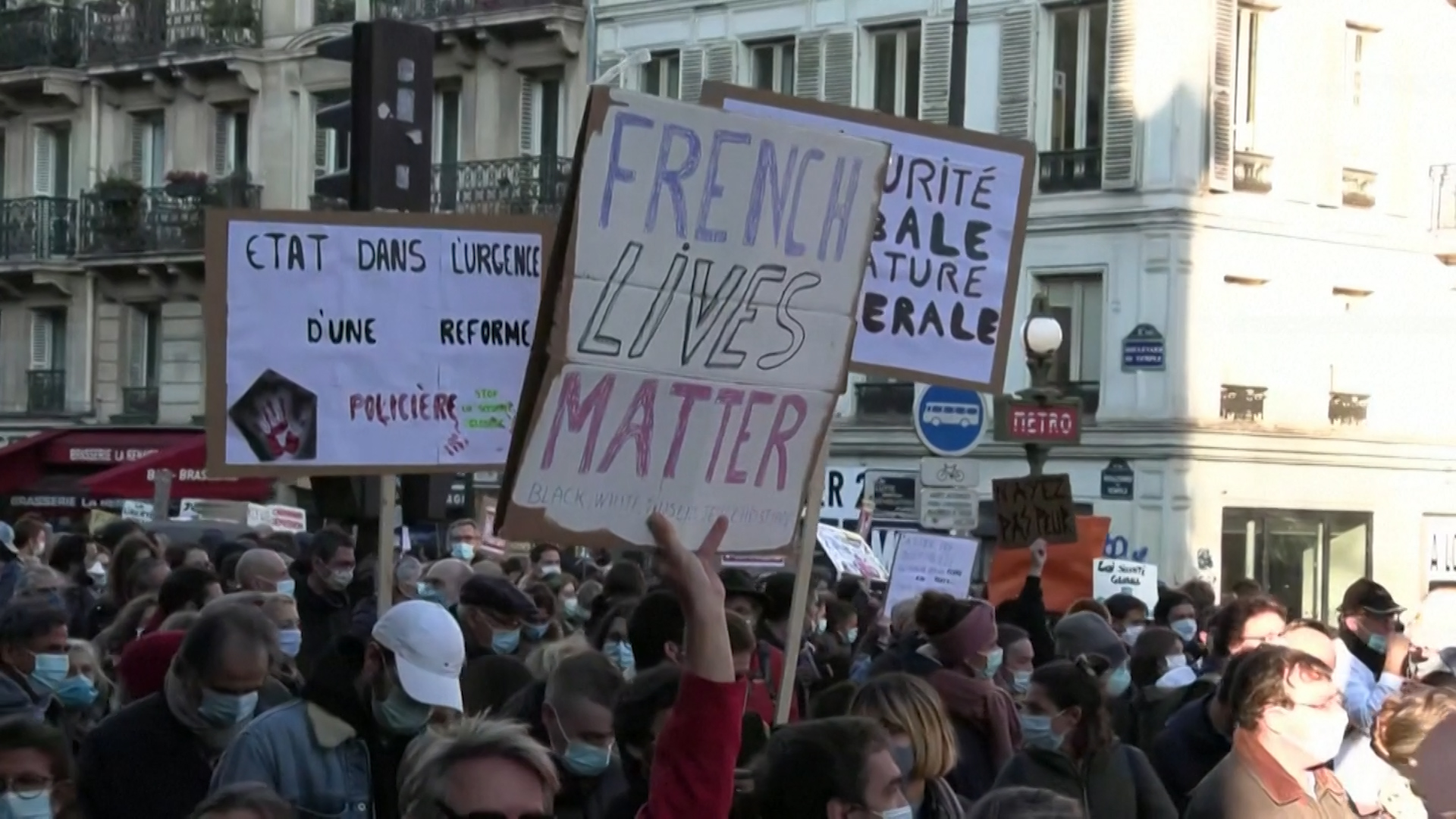02:50

The French president's party says there will be a "complete rewriting" of the controversial Article 24 of the government's proposed Comprehensive Security bill.
The bill would increase police powers and tighten laws around sharing pictures of law enforcement.
This weekend there were more major rallies against the proposed law, which would allow police to use camera-equipped drones.
More than 130,000 people demonstrated in cities across France, with nearly 50,000 people protesting in Paris, according to the Interior Ministry.
"It's a law that, by suppressing our right to film what happens with the police, we no longer have evidence," said Salomé, a student, who preferred not to give her surname.
"In legal terms, we cannot be heard if we don't have sufficient evidence to deny what the police are saying."

Fabienne, 62, who works in sales, said: "Right now they've created a bill that would forbid us from filming, while we are filming unbelievable things, so here I am, in the street for my freedom."
"Given the evolution of the law and of the modern world, such a bill would really harm the good reputation of this beautiful country that is France, which I respect and love so much," said artist Alpha, who also did not give his full name.
Lawmakers and police unions have been speaking out against what they see as a deliberate misreading of the intended legislation.
READ MORE: WHY IS POLICING SO HARD TO REFORM?
They say it does not contravene the freedom of the press and has very specific wording regarding the clause on taking photos of the police.
Offenders could be sentenced to up to a year in jail, and fined $53,000 for sharing images of police officers.
The government says the new measure would stop unlawful targeting of police.

Demonstrators hold effigies of French President Emmanuel Macron, center, French Interior Minister Gerald Darmanin, left, and Paris police prefect Didier Lallement. /Joel Saget/ AFP
Demonstrators hold effigies of French President Emmanuel Macron, center, French Interior Minister Gerald Darmanin, left, and Paris police prefect Didier Lallement. /Joel Saget/ AFP
But ministers are having to contend with increasing examples of police brutality.
On November 29, it was confirmed that four police officers had been charged following the beating of a black music producer in Paris earlier this month.
A video from a security camera, which was released by online news site Loopsider, shows police officers kicking, punching and hitting Michel Zecler with a truncheon.
The 41-year-old was intercepted walking down a street in Paris without wearing a face mask as required by coronavirus health restrictions.
The officers forced him back into his studio – assaulting him before throwing a tear gas canister inside the room.
And on November 24, officers used heavy-handed methods to clear a migrants' camp in central Paris, with an inquiry opened into the actions of law enforcement.

